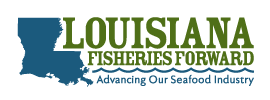Audubon G.U.L.F. is developing a Responsible Fisheries Management (RFM) Certification that is “a credible, practical, cost-effective, and transparent approach to fisheries certification. This certification allows companies to demonstrate the responsible practices of the seafood they source.” Fisheries in the program are Louisiana blue crab and Louisiana oyster.
They are taking public comment now, until August 1, on the RFM Scheme to include standards and processes for the Certification. Click here to submit comments online or for more information on written comments.
More information on the RFM Certification from the G.U.L.F. website:
The G.U.L.F. RFM Certification Program is a responsible fishery management model based on internationally-accepted principles set by the Food and Agricultural Organization of the United Nations (FAO). The Code of Conduct for Responsible Fisheries and the Ecolabeling Guidelines for Fish and Fishery Products are the basis for the criteria on which the certification was built (more on FAO Documents). This model was adopted at the request of Gulf seafood stakeholders to provide a choice in seafood certifications that demonstrate the responsible practices of Gulf fisheries.
The G.U.L.F. RFM Certification joins similar responsible management certification models established in Alaska and Iceland. The Responsible Fisheries Management model is also being considered for use in other regions. The G.U.L.F. RFM Certification is a credible, practical, cost-effective, and transparent approach to fisheries certification. This certification allows companies to demonstrate the responsible practices of the seafood they source.
Key features of the program include:
1. It is a voluntary, third-party certification.
2. It delivers a claim of “responsible fisheries management for sustainable use” according to FAO principles.
3. It measures the effectiveness of fisheries management against biological, ecological, and socio-economic criteria.
4. It seeks maximum stakeholder input to assure inclusiveness and credibility.
5. By being locally based, it provides flexibility for regional needs.
6. It is an accredited certification in conformance with ISO/IEC 17065.




